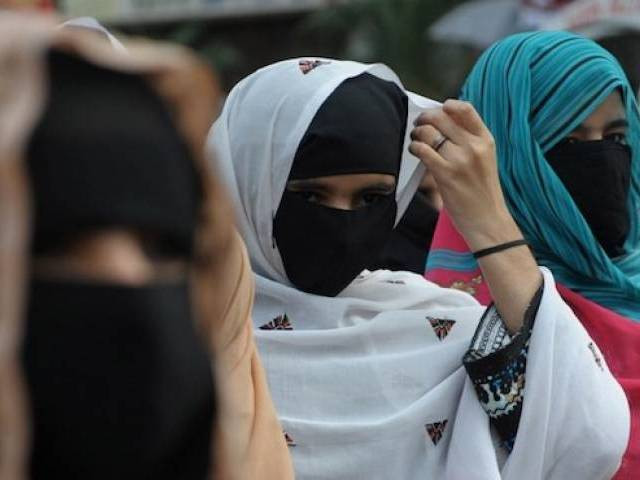Gender colloquium: Laws on gender violence not enforced, says researchers
‘Loopholes in laws on sexual assault are used to deny justice to victims’

PHOTO: AFP
The colloquium was arranged by the Saida Waheed Gender Initiative at the Lahore University of Management Sciences (LUMS) to highlight research carried out on the topic by college students from across the country.
In a discussion over Project Dareecha: Creating Awareness About the Legal Rights of Working Women, Habib University students Anusha Fatima, Fatin Nawaz and Hasan Naqvi said they had developed a webpage to disseminate information about laws dealing with gender-based violence and sexual harassment. They said the webpage also enabled visitors to get in touch with non-government organisations (NGOs) working in the sector for legal assistance. As part of their project, they said, they were also gathering data and making infographics based on it in regional languages. They hoped that this would help raise awareness about the existing laws and improve their implementation. They said most women were not aware of their rights and state institutions had never stepped up to help victims of gender-based violence.
They said that 3,300 cases of sexual harassment were decided following the enactment of the Protection Against Harassment Act of 2010. In comparison, they said, only three cases of sexual harassment had been tackled between 1947 and 2010 under the earlier legal framework. The establishment of inquiry committees under the 2010 Act had enhanced the effectiveness of the law against sexual harassment.
During their research on public awareness about the law, they said they found that about 50 per cent of the faculty members and 70 per cent of the students were not aware of it. This showed that there was lack of awareness about the law even within the educated circles.
Maria Khan, a law student at the Lahore University of Management Sciences lamented that the country was a signatory to the United Nation’s Convention on the Elimination of all Forms of Discrimination Against Women (CEDAW) but it had yet to implement it. In her project Combating Violence against Women in Pakistan through Application of the CEDAW, she said she had compared laws against violence with the standards set in the CEDAW. While laws in several other countries were more progressive than the CEDAW Pakistan’s laws did not even meet the standards set in it, she said.
Referring to recent steps to strengthen laws against violence, she said it remained to be seen if these laws could be implemented effectively.
Khan urged the government to bring its laws in conformity with the CEDAW and to improve investigation and prosecution of cases filed under laws against gender-based violence.
The third presentation focused on laws against sexual assault. Faraz Ahmed Sheikh and Syed Waqar Alam from the LUMS said these laws carried loopholes that had been exploited by the perpetrators to deny justice to the victims.
Discussing the case of Mukhtari Mai, they said the men accused of sexually assaulting her had been sentenced to death by a trial court but the sentence was later turned down by the Supreme Court.
They said that legislation was inadequate to bring down crimes against women. A holistic approach with reforms in the education curricula and police department and witness protection mechanisms were needed, they added.
Published in The Express Tribune, April 10th, 2016.



















COMMENTS
Comments are moderated and generally will be posted if they are on-topic and not abusive.
For more information, please see our Comments FAQ